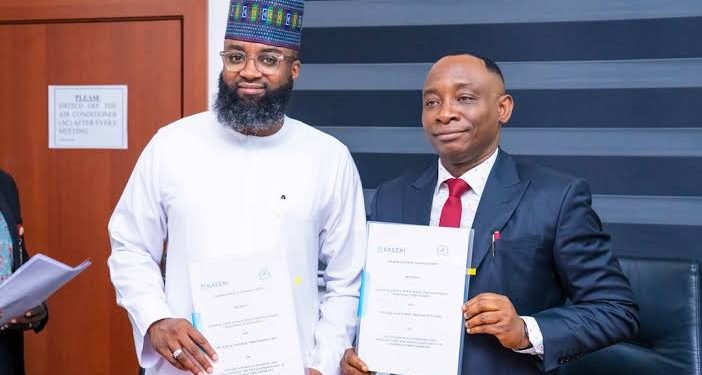The Lagos State Government has announced a new partnership with global technology firm Siemens Group to support its waste-to-energy initiatives. The collaboration, jointly overseen by the Ministry of Environment and Water Resources and the Ministry of Energy and Mineral Resources, is aimed at converting the state’s vast municipal waste into electricity.
This development was revealed on Tuesday through a statement posted on the state government’s official X account following a strategic meeting with Siemens representatives in Alausa.
The Commissioner for the Environment and Water Resources, Tokunbo Wahab, said Lagos generates between 13,000 and 14,000 tonnes of municipal solid waste daily, with a significant portion still untapped. He noted that while some of the waste has already been allocated to other waste-to-wealth initiatives, including engagements with a Dutch company and cement producer Lafarge for energy generation, new partnerships such as Siemens’ would further unlock the waste’s potential.
He cited existing projects like the Epe power plant and the material recovery facilities in Ikorodu and Badagry as part of ongoing efforts to reduce landfill reliance and grow Lagos’ renewable energy supply.
Also speaking, the Commissioner for Energy and Mineral Resources, Biodun Ogunleye, said Lagos’ growing urban population increases the urgency for sustainable energy solutions. He assured that the government is creating a favourable environment to attract private-sector investments like Siemens’.
Siemens Group’s Commercial Director, Durgen Schumann, pledged the company’s global expertise in power generation to help Lagos address its waste management and electricity challenges.
This latest move builds on earlier efforts by the state government to drive energy transition through waste conversion. In July, the Environment Ministry announced a $400 million plan to establish a waste-to-energy plant in Epe, structured under a private sector-led model involving design, construction, financing, and operations. The project is expected to yield a 12 percent internal rate of return over two decades, supported by energy tariffs and tipping fees.
Additionally, the Netherlands government has committed €120 million to support a similar initiative with the Harvest Waste Consortium, a Dutch firm engaged by the state. In February, Lagos also signed an MoU with Lafarge Africa Plc to convert non-recyclable combustible waste into alternative fuel for the company’s Ewekoro plant.
These initiatives underscore Lagos State’s commitment to sustainable urban development by turning waste into a source of economic and energy value.










